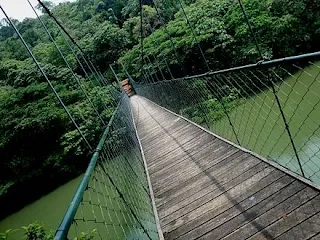Eco-tourism paragraph
Write a paragraph answering the following questions. Your answer should give as much detail as possible.
a. What is tourism?
b. Define eco - tourism.
c. What are the differences between tourism and eco - tourism?
d. What are the principles of eco - tourism?
e. Name some countries that are popular for eco - tourism.
f. What are the benefits of eco - tourism?
g. Mention some criticisms of eco - tourism
Eco-tourism is broadly defined as low impact travel to endangered and often undisturbed locations.
According to the International Eco-tourism Society, eco - tourism refers to responsible travel that conserves the environment and improves the well-being of local people. It is different from traditional tourism because it allows the traveller to become educated about the areas both in terms of the physical landscape and cultural characteristics. The principles of ecotourism are beneficial for the world as a whole, given the constantly deteriorating climatic conditions.
The principles are minimizing the impact of visiting, the location, building respect and awareness of the travellers for the environment and cultural practices, ensuring a positive experience for both travellers and hosts, providing direct financial aid for conservation, providing financial aid, empowerment, and other benefits for local people, raising awareness of the travellers about the host country's political, environmental and social climate.
Also read: Ecotourism essay
Eco-tourism is popular among Central and South American countries such as Bolivia, Brazil, Ecuador, Venezuela, Guatemala, and Panama. However, there are hundreds of countries where opportunities for eco-tourism exist. There are some benefits of ecotourism as well.
Ecotourism focuses on unadulterated, pristine natural environments. It builds cultural and environmental awareness. It also encourages a positive experience for visitors as well as hosts. Despite the popularity and benefits of eco tourism, it has gone through several criticisms. Increased tourism to sensitive areas without proper planning and management can harm the ecosystem.
Moreover, eco-tourism has different a negative impact on local communities. Again, it can make the area more dependent on tourism than its domestic economic practices. So, we have to be aware of the adverse effects of eco - tourism and deal with them sensibly.
Ecotourism paragraph 200 words
Ecotourism is a form of sustainable tourism that focuses on preserving natural environments and supporting local communities. It involves traveling to natural areas, such as forests, mountains, and wildlife preserves, and participating in activities that minimize the impact on the environment and benefit local people. Examples of ecotourism activities include hiking, bird watching, and wildlife safaris. Ecotourism also includes a strong educational component, with the goal of educating visitors about the importance of preserving natural environments and supporting local communities.
Ecotourism is becoming increasingly popular as more people become aware of the importance of sustainable tourism. By supporting ecotourism, travelers can help to preserve natural environments and support local communities while also having a unique and rewarding travel experience. It is a way for tourists to connect with nature and learn about the importance of conservation and protecting the environment. The income generated from ecotourism can also provide a valuable source of income for local communities, helping to support their livelihoods and improve their standard of living.
Ecotourism can also play a vital role in protecting endangered species, preserving cultural heritage and promoting environmental education. It can also benefit local economies by creating jobs, providing training, and encouraging small businesses development.
Ecotourism is a responsible way to travel, and it is becoming increasingly important as the world's population continues to grow, and the pressure on natural resources continues to increase. By choosing to participate in ecotourism, travelers can play an active role in protecting the environment and supporting local communities.


